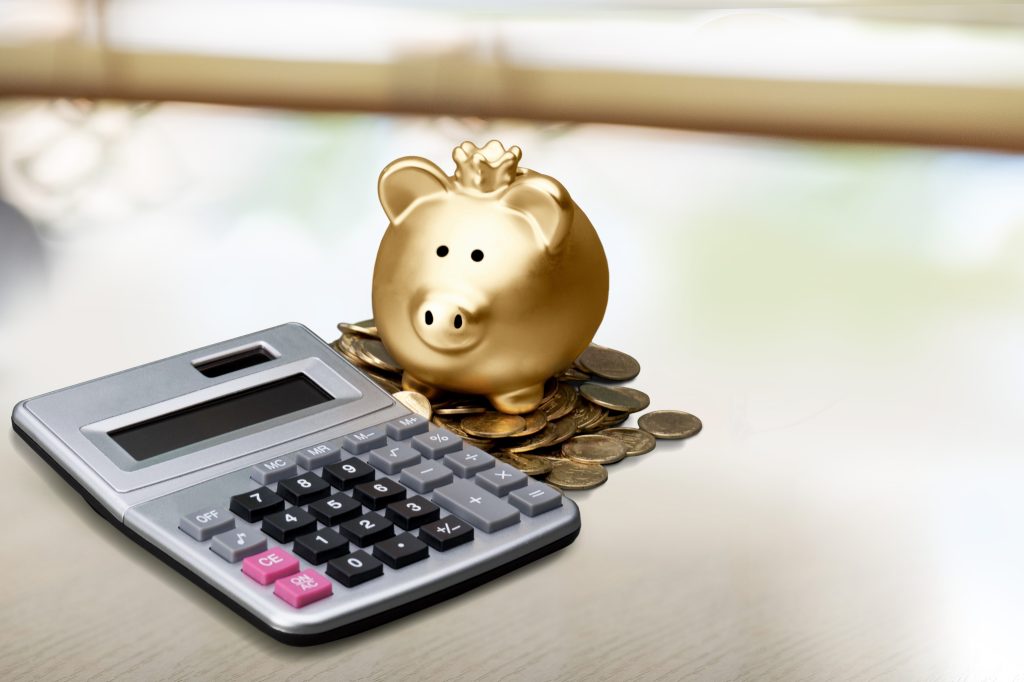A fixed deposit is one of the safest investment options through which one can earn high interest in comparison to a standard savings account. It is a savings option where the investor needs to deposit a specific amount for a fixed period of time. It is a relatively safe investment option that can be the best option for people who are looking for guaranteed returns. This article will focus on what is fixed deposit, their types and their advantages.
What is a Fixed Deposit (FD)?
The FD full form is a fixed deposit. When you open an FD in a bank, you deposit a given sum of money at the bank for a specified period at a particular, agreed-upon interest rate. Thus, as the name suggests, all the terms of this investment are already fixed at the start. When the fixed deposit tenure ends, you get all the money back and the interest it has earned. You have saved the money you had on hand and earned great returns. Neat, right?
Fixed deposits are an excellent investment option if you don’t want to play with fire and take too many risks with investments connected to market fluctuations. Because everything, from the lock-in period to interest rates, is fixed, your money is safe, and your returns are assured.
Fixed deposit accounts are super flexible and can be tailored closely to your needs. You can choose the tenure of the deposit, which can range from 7 days to 10 years, and even decide how often you want to receive your interest payouts, and if you wish to reinvest these returns.
Interest on fixed deposits varies based on how much money you are putting in and how long you will hold the deposit. Rates also vary between private and public sector banks and even from one individual bank to another. Broadly, they fall between 3% to 9.54% per annum.

Types of Fixed Deposits
While figuring out the meaning of a fixed deposit account, one of the greatest discoveries you’ll make is just how flexible bank FDs can be. They can be tailored to your precise needs with some research to find the best possible fit!
Now that we know FD full form and what is fixed deposit, it is time to talk type of FD. Here are some of the different types of fixed deposit accounts available at banks.
Flexi Fixed Deposit
Also known as a liquid fixed deposit, this is a special kind of FD you usually open with your bank. Your money is not locked in very firmly with a flexible fixed deposit. Once your savings account holdings are depleted, money can be withdrawn from the FD. This is an excellent option for people looking for good interest rates while also wanting flexibility in accessing their money.
Tax Saving Fixed Deposits
An aspect of adulthood nobody seems to prepare us for is doing taxes. If you’re looking to save some money through tax exemptions, special, tax-saving fixed deposits are deposits where your returns – up to Rs. 1,50,000 in a calendar – won’t be taxed. Tax saving FDs usually have a firm lock-in period of 5 years.
Fixed Deposits for Senior Citizens
Especially for people above the age of sixty, senior citizen fixed deposits offer higher interests and more flexible lock-in periods.
Also Read: Senior Citizen Fixed Deposit Interest Rates
Compound Interest Fixed Deposits
You earn interest on the principal amount plus its interest, where the interest is added to the principal at specific intervals, usually quarterly or yearly. Compound interest FDs have excellent returns and are a great way to grow your savings over time.
Simple Interest Fixed Deposits
Unlike compound interest fixed deposits, simple interest fixed deposits pay out the money they make based on interest at specific intervals. These can be either monthly, quarterly, half-yearly, or even yearly.

Did You Know?
The full form of FD in Hindi is saavadhi jamaa (सावधि जमा) or miyaadi jamaa (मियादी जमा). If you’re speaking to your banker in Hindi, however, the full form of FD in the bank is fixed deposit in English and Hindi for all practical purposes.
Benefits of Fixed Deposit
Fixed deposits are an excellent investment plan in short as well as long terms for various reasons.
- Tax benefits: You can claim up to Rs. 1,50,00 per year in tax deductions through tax-saving investments, including fixed deposits.
- Stability: Fixed deposits are a popular investment plan in India primarily because of how low the risk you assume. Because the terms of your returns are decided at the time of investment, you’ll know exactly what your returns are. Market fluctuations and the state of the national or international economy will not impact your returns.
- Loan security: if you’re ever facing an emergency or a cash crunch, FDs can be used as security to take out loans at low interest rates against your deposit.
- Income: if you opt for a simple interest/non-compound interest fixed deposit, you are guaranteed the income from the interest in your principal amount at regular intervals.
- Liquidity: You have easy access to your money in many fixed deposit plans. Through FDs, you reap the benefits of liquidity and higher interest rates than a regular savings account.
- Flexibility: fixed deposits come in such a wide variety that no matter what your needs are, from a short-term FD to investing for a big day in the future, you’ll find something tailored for your tenure and principal investment needs.
Components of a Fixed Deposit Account
While understanding what is fixed deposit, you’ll need to understand the different aspects of FD accounts. They include:
Interest rate
The interest rate of your fixed deposit account refers to the pre-decided interest rate banks offer on their FDs. They vary slightly from bank to bank and are based on the principal amount you are investing. In 2022, FD interest rates range from 2.5% to 6% for general citizens, and from 2.5% to 6.5% for senior citizens.
Tenure
The tenure of a fixed deposit refers to the lock-in period of your deposit at the bank. This can range from 7 days to 10 years. While some lock-in periods are strict and incur a penalty if broken, others can be more flexible.
Principal amount
The principal amount refers to the money you have invested in your fixed deposit. Most fixed deposits have a minimum deposit amount of Rs. 5,000.
Flexible Renewal
An account holder has the flexibility to withdraw or renew their fixed deposit at the time of maturity. Most financial institutions also offer an auto-renewal feature.
Tax Deduction
As an investor, you can claim tax deductions up to Rs. 1.5 lakh on your fixed deposit investments under section 80C of the Income Tax Act of India, 1961.

How to Invest in a Fixed Deposit?
Now that you have the big picture of what is fixed deposit and know FD full form in bank, perhaps you’ve decided it’s time to take the plunge and invest in one. You’ve determined how much you want to invest and for exactly how long. Now what?
The process, once you’ve figured out these details, is straightforward. You can whip out your phone or laptop and open it online using the net banking service of your bank, or take a walk or drive to the nearest bank and do it there. You might need proof of identity: Aadhaar card, PAN card, driving license, voter ID, etc. Banks, however, usually waive this requirement if you hold an account with them already.
Also Check: Fixed Deposit Calculator
Fixed Deposit Interest Rates
Interest rates of fixed deposits depend on several factors: the amount you are investing, the tenure of the fixed deposit, the bank you are investing with, and even your age.
The table below offers a broad overview of the interest rates offered on fixed deposits by some major banks in India.
| No. | Bank name | General citizen rates per annum | Senior citizen rates per annum |
| 1 | HDFC Bank | From 2.50% to 5.60% | From 3.00% to 6.35% |
| 2 | SBI | From 2.90% to 5.50% | From 3.40% to 6.30% |
| 3 | HSBC | From 2.25% to 4.00% | From 2.75% to 4.50% |
| 4 | Yes Bank | From 3.25% to 6.25% | From 3.75% to 7.00% |
| 5 | Canara Bank | From 2.90% to 5.50% | From 2.90% to 6.00% |
Key Takeaways
- What is a fixed deposit? A fixed deposit refers to a kind of investment wherein you deposit a fixed sum of money for a specific period at a particular interest rate provided by the bank.
- Fixed deposits are a safe, stable, and low-risk way of earning assured returns on your savings at higher interest rates than savings accounts.
- Fixed deposits are very flexible and offer a range of investment tenures, minimum principal amounts, and even interest rates based on your specific needs.
- Investing in tax saving benefits can also offer you tax deductions up to Rs. 1.5 lakh per year.
Words to Remember
Compound interest refers to the addition of the returns from interest to the principal amount invested. Simply put, this means that even as your interest rates remain the same over the tenure of your FD, your returns increase exponentially because the interest rates are applied to the gradually growing principal amount.
Conclusion
If you’ve found yourself asking what is fixed deposit, you now know why it is talked about all the time. Financial planning has become more critical than ever in such uncertain times. Fixed deposits are a reliable and extremely popular way of saving money in India. They are the preferred investment choice of many because they are steady, safe, and offer stable returns. Most importantly, they are straightforward to open: all you need is a bank account. You won’t even need to leave your home, and it can usually be done in minutes.
FAQs
Fixed deposit accounts refer to investing a specific amount of money for a given period at a pre-decided interest rate offered by a bank.
It depends on the terms of your FD. Some of them allow you to withdraw money when you like, while others – especially tax-saving FDs – have strict lock-in periods.
Fixed deposits can be created for any amount of time between 7 days and 10 years.
Yes. Fixed deposits work on pre-decided interest rates and will not be affected by market fluctuations. When you invest in a fixed deposit, your returns are guaranteed!
The minimum age for opening an FD is 18 years. However, parents can open a fixed deposit account on behalf of their child. The child will receive the earnings when they turn 18, or the FD reaches maturity (whichever comes first).
The banks may charge a small penalty if you want to make premature withdrawals before maturity.
Yes, you can get a loan against your fixed deposit account. The amount of the loan will depend on your deposit amount.
In case of premature withdrawals, sweep-in withdrawals, and partial withdrawals, a small penalty may be charged by the banks.
In case the depositor passes away, the nominee must produce the death certificate. Upon receiving it, the banks will replace the name of the deceased with the nominee.




